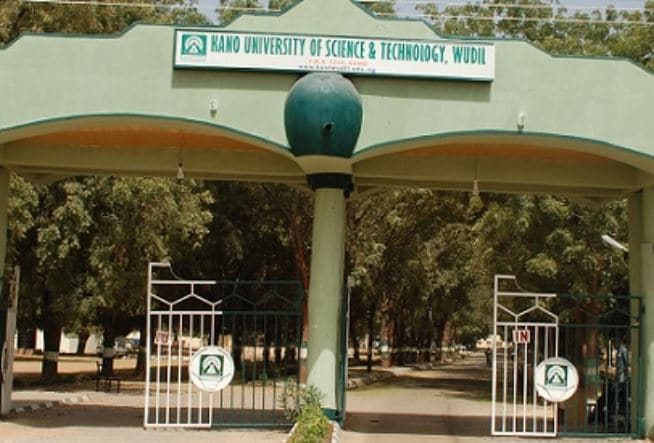
• Seeks attitudinal change to stabilise Naira
• Cardoso’s FX reforms deliver $844m, highest single day trade in 19 months
• Distribute foods to Nigerians from grain reserve, Reps urge FG
• Evidence of policy failures overwhelming, Atiku again tackles Tinubu
Nigerians spent over $40 billion to access education and healthcare abroad between 2010 and 2020, governor of the Central Bank of Nigeria (CBN), Oluyemi Cardoso, disclosed yesterday, noting that the high number of Nigerians in foreign schools and medical tourism are two of the major factors putting pressure on the naira.
He made this disclosure while appearing before the House of Representatives for the sectoral debate on the economy. According to the bank chief, the demand for dollars by these students and those travelling for medicals abroad is hurting the naira. While foreign education expenses amounted to $28.65 billion, the CBN governor said medical treatment abroad incurred around $11.01 billion, an amount that surpasses the total current foreign exchange reserves of the apex bank.
The sectoral debate/dialogue is an initiative of the 10th House of Representatives as part of its periodic Policy Brief Series. In attendance also were Minister of Finance, Wale Edun; Minister of Budget and Planning, Atiku Bagudu; and Chairman of the Federal Inland Revenue (FIRS), Zacch Adedeji.
Quoting recent data from UNESCO’s Institute of Statistics, Cardoso said the number of Nigerian students abroad increased from less than 15,000 in 1998 to over 71,000 in 2015. According to him, by 2018, the figure had reached 96,702 students and is presently estimated to be above 100,000 students.
“Another report projects the number of Nigerian students studying abroad to exceed 100,000 by 2022. Given this data, it’s crucial to highlight that between 2010 and 2020, foreign education expenses amounted to a substantial $28.65 billion, as per the CBN’s publicly available Balance of Payments Statistics. Similarly, medical treatment abroad has incurred around $11.01 billion in costs during the same period.
“Notably, this amount surpasses the total current foreign exchange reserves of the CBN. Mitigating a significant portion of this demand could have resulted in a considerably stronger Naira today,” he said.
Speaking further, Cardoso explained that the Federal Government spent $58.7 billion on Personal Travel Allowances within the same period and disbursed an additional $9.01 billion to Nigerians for personal foreign travel between January and September 2019. He said his take on medical tourism and education was not to condemn anyone, but to explain the factors putting pressure on the naira.
However, turnover in Nigeria’s foreign exchange market jumped to $844 million on February 3, the highest dollar trade since June 2, 2022, according to data compiled by the FMDQ Securities Exchange Ltd.
The amount is three times more than the $266 million traded on February 1. The spike is reportedly attributed to the latest reforms by CBN governor, Cardoso, who unveiled a series of measures that enabled the naira to trade more freely against the dollar.
There is better transparency in the official market and banks were mandated to offload excess dollars. The CBN also removed the cap on transactions by the International Money Transfer Operators (IMTOs). The improved supply is rubbing off on the embattled naira which suffered wild swings last week.
The naira strengthened to N1419/$ on Monday, up from N1435/$ Friday. Parallel market rate is not yet strengthening as much as the official rate. This is fanning fears that it may only be a matter of time before a huge gap re-emerges between both rates. The dollar sold for N1455 on the streets on Tuesday, leaving a two per cent gap compared with the official rate.
Speaking on the development, Cardoso said: “We are at a turning point and the bold reforms on the way across different segments of the economy, though initially challenging, are aimed at addressing these challenges sustainably.
“I am confident that positive outcomes are already emerging and will become more apparent soon. The dedicated and relentless efforts being made are certain to bring about significant and positive changes for our economy.
“On that note, I am happy to inform you that as of yesterday, the volume of transactions on our market was over $800 million. This is the first time in many years that it has achieved this level.”
Edun, on his part, said the Federal Government was achieving positive results with measures rolled out to address the economic challenges. According to him, allocation to states and local governments have increased with the blockage of wastage and removal of subsidy. In his presentation, the FIRS boss said though the agency set a target to collect N19.4 trillion in tax this year, it won’t introduce new taxes.
HOWEVER, as a drastic step to address the growing discontent over rising cost of food and tackle the hunger in the land, the House of Representatives urged the Federal Government to immediately open the grain reserves and distribute grains to needy Nigerians.
The resolution followed the adoption of a motion of national urgent importance moved by the member representing Ifo/Ewekoro Federal Constituency, Ogun State, Mr Ibrahim Isiaka.
Leading the debate, Isiaka noted the cost of living has become very difficult for Nigerians, even as he lamented the rising cost of cement despite having all the raw materials to produce cement.
But the presidential candidate of the Peoples Democratic Party (PDP) in the 2023 general election, Atiku Abubakar, has described evidence of the failures of President Bola Tinubu’s economic policies as overwhelming. He noted that the presidency failed in its bid to provide a credible defence of Tinubu’s failures in tackling Nigeria’s economic challenges. This was contained in a statement signed by Atiku’s media adviser, Paul Ibe, in Abuja on Tuesday.
He said: “The presidential spokesman, Bayo Onanuga, failed to provide a credible defence of Tinubu’s failures in tackling the economic challenges facing the country. He demonstrates ignorance of the happenings around him, as he denies, for example, that Tinubu’s policies are creating excruciating pain and causing despair.”
Atiku insisted that he offered better policy options during the 2023 presidential campaign when compared to Tinubu’s “morbid prescriptions. Did Atiku offer any better policy options in his run for the presidency?
Yes, he did. His living prescriptions contrast sharply with Bola Tinubu’s morbid policies.
“Atiku’s policy document, My Covenant With Nigerians, offers a clearly defined and robust roadmap for the socio-political and economic transformation of Nigeria. On the economy, the policy document outlines the challenges we face and our vision to get the economy on its feet and create prosperity. If Bayo desires, he can have a copy for free!”













